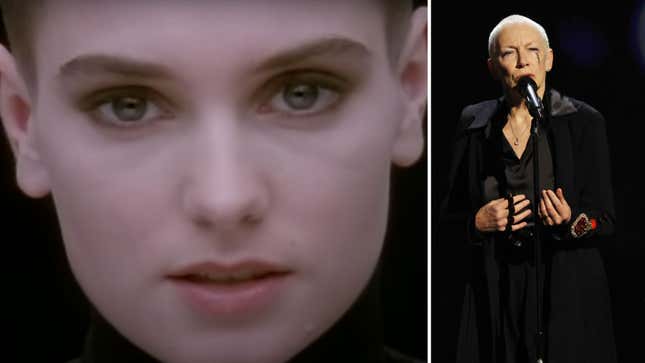Annie Lennox Concludes Sinéad O’Connor Grammys Tribute With Call for Gaza Ceasefire
In perhaps the most fitting way to honor O'Connor's legacy, Lennox called for a Gaza ceasefire during her tribute performance of "Nothing Compares 2 U.”
Entertainment

From Fantasia Barrino’s rousing homage to Tina Turner to Jon Batiste’s tribute to Clarence Avant, the “Godfather of Black Music,” it’s safe to say the In Memorium portion of the Grammy Awards was one of the more moving moments of the evening. But it was during Annie Lennox’s salute to the life and legacy of Sinéad O’Connor, however, that a needful message—one that has yet to be uttered on stage by a single celebrity this award show season—was delivered.
“Artists for ceasefire, peace in the world,” Lennox declared after performing a rendition of O’Connor’s most famous ballad, “Nothing Compares 2 U.”
The Eurythmics icon and Scottish pop singer-songwriter is one of several signees of Artists4Ceasefire, an organization led by actors, singers, and other industry members urging for “an immediate de-escalation and ceasefire in Gaza and Israel before another life is lost.” In a letter the organization addressed to President Joe Biden, hundreds of celebrities underscore the urgent need for humanitarian aid for Gaza’s two million residents—half of them children.
-

-

-

-

-

-

-

-

-

-

-

-

-

-

-

-

-

-

-

-

-

-

-

-

-

-

-

-

-

-

-

-

-

-

-

-

-

-

-

-








































